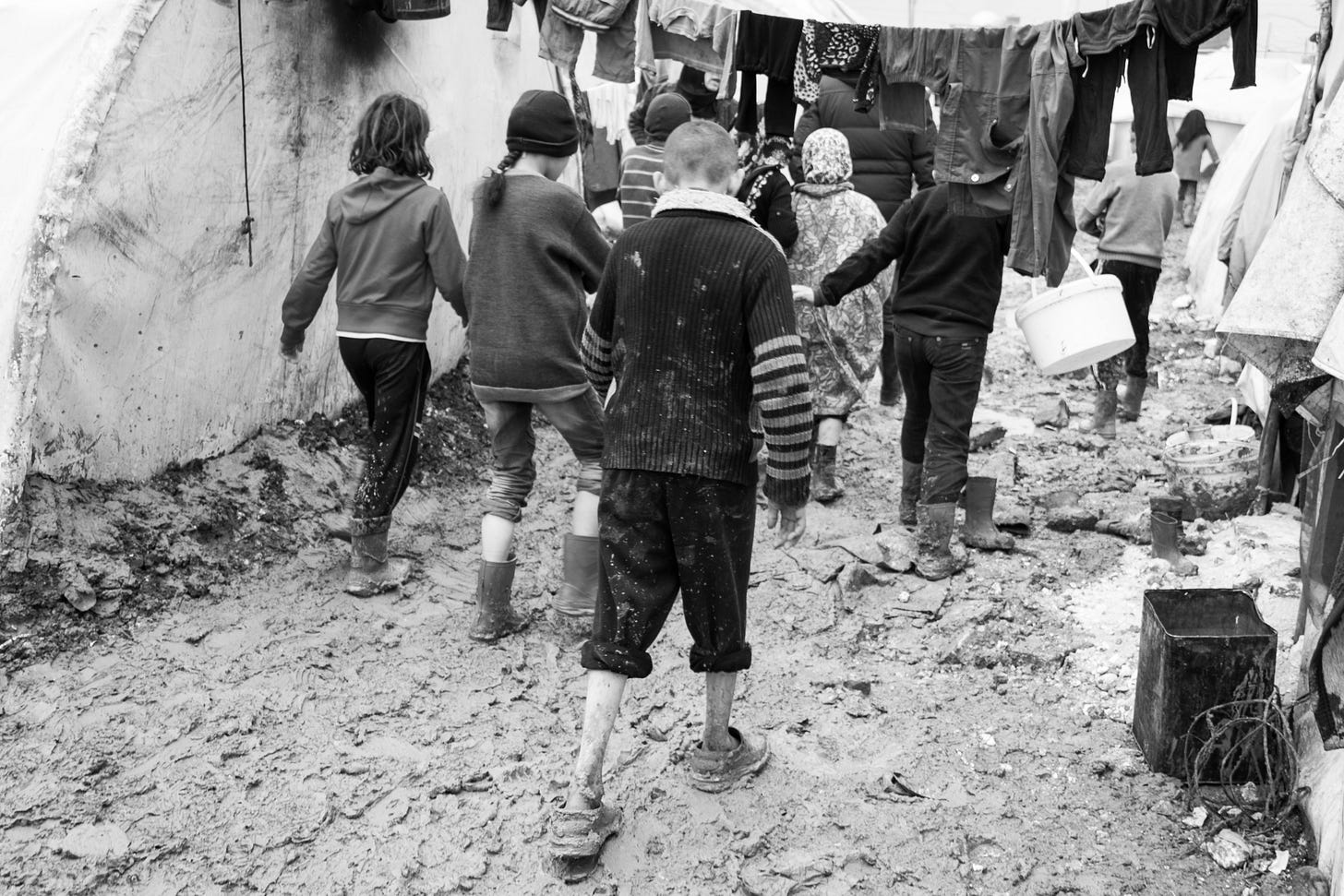Will Ukraine Become Another Syria?
A conversation with military historian Carter Malkasian on the sad reality that Ukraine matters more to Russia and its dictator than to the U.S. and NATO.

By Michael Judge
I spoke with Carter Malkasian, military historian, former senior adviser to the chairman of the U.S. Joint Chiefs of Staff, and the author, most recently, of The American War in Afghanistan: A History, one day before President Biden spoke to Ukrainian refugees in Poland and called the man who sent them fleeing for their lives, Vladimir Putin, a “butcher” who “cannot remain in power.”
The White House immediately walked back Biden’s statement saying it does not reflect official U.S. policy in the region. In other words, if Putin chose to sue for peace right now—in exchange for guarantees that Ukraine would remain neutral and not join NATO—the U.S. and its allies would likely agree to it.
Whether President Zelensky and the Ukrainian people would is another question altogether, especially after the atrocities uncovered in the suburbs of Kyiv when Russian troops pulled back, leaving behind mass graves and evidence of myriad war crimes including rape and the systematic execution of civilians.
After traveling to the suburb Bucha to see the carnage himself, Zelensky called what happened there “genocide” and “war crimes” and pledged to work with the European Union and the International Criminal Court to bring those Russian soldiers and commanders involved in the atrocities to justice.
Meanwhile the EU, NATO and the U.S. continue to pledge ever-stricter economic sanctions on Russia and ever-more weapons systems to aid Ukraine in its fight for survival—short, of course, of entering the fight directly.
All of which brings up the fundamental problem with NATO and similar security alliances and treaties in Asia. Are countries outside those alliances, most notably Ukraine and Taiwan, expendable in order to prevent a direct military conflict between the U.S. and Russia or the U.S. and China?
Stated more bluntly, is the West willing to sacrifice the sovereignty—and much of the civilian population—of Ukraine and Taiwan in order to prevent what could escalate into World War III and, potentially, a devastating nuclear exchange?
Writing in Foreign Affairs this week, Harvard’s Graham Allison warned that the war in Ukraine is “entering a new, darker, and more dangerous phase.” Putin, he said, has proven in Mariupol—and before that in Grozny and alongside Syrian dictator Bashar Assad in Aleppo—that he is willing to level a city in order to “liberate” it. And, even darker, if Putin is “pushed to choose between making an ignominious retreat and escalating the level of violence, we should prepare for the worst. In the extreme, this could include nuclear weapons.”
All of this makes one grateful that experts like Malkasian, currently a professor and chair of the Department of Defense Analysis at the Naval Postgraduate School in Monterey, Calif., are around to offer our civilian and military leaders the historical perspective and dispassionate analysis they need in wartime.
I spoke with Malkasian, whose books include The Korean War, War Comes to Garmser, Illusions of Victory, and Counterinsurgency in Modern Warfare, by telephone from his office in Monterey, both of us worlds away from the fighting in Ukraine.
Keep reading with a 7-day free trial
Subscribe to The First Person with Michael Judge to keep reading this post and get 7 days of free access to the full post archives.


